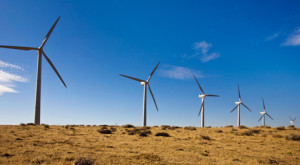 Google has announced plans to continue its rollout of solar energy plants in the U.S. with an $80million investment for six new facilities; its second largest to date.
Google has announced plans to continue its rollout of solar energy plants in the U.S. with an $80million investment for six new facilities; its second largest to date.
So far, Google has committed over $1 billion to wind and solar power plants that create clean energy and generate “attractive financial returns,” it said in a blog post.
The new plants, which will be built in California and Arizona, are expected to generate 160 megawatts (MW) of electricity, enough to power 17,000 typical U.S. homes. They are expected to be operational by early 2014.
The 17.5 megawatt/22 megawatt Victor Phelan project, located in San Bernardino, California, is part of six Recurrent Energy developed projects acquired by Google and KKR.
“You’d think the thrill might wear off this whole renewable energy investing thing after a while. Nope – we’re still as into it as ever, which is why we’re so pleased to announce our 14th investment,” Google wrote on its official blog.
All together, Google’s 14 renewable power facilities will be able to generate 2 billion watts (gigawatts) of energy, enough to power 500,000 homes or all of the public elementary schools in New York, Oregon, and Wyoming for one year, the company said.
The latest solar power investment is similar to one Google made in 2011, when it partnered with global investment firm KKR and invested $94 million in four solar facilities built by Recurrent Energy.
“Those facilities have since started generating electricity, and we’ve committed hundreds of millions more – more than $1 billion in total – to renewable energy projects around the world,” Google said in its blog. “These investments are all part of our drive toward a clean energy future – where renewable energy is abundant, accessible and affordable.
As before, Google is partnering with KKR to finance its utility-scale solar facilities in California and Arizona. Recurrent Energy will again build the plants.
Google now gets about 20% of its power from solar facilities, but the company has committed to achieving 100% renewable energy.
In addition to locations in California and Arizona, Google has data centres in Oklahoma and Iowa so they can plug into wind farms.
Along with Microsoft and Apple, Google is among a fleet of technology companies that are moving to tap solar, wind and hydroelectric power sources.
Microsoft built one data centre next to a Wyoming landfill in order to use methane gas to power the facility. Apple now uses a massive 100-acre solar energy farm to power its Maiden, N.C. data center.
Over the past six years, the growth in wind farm deployments in the U.S. has been second only to gas-powered electrical plants.
The list of companies using and deploying renewable energy resources includes Intel, Kohl’s, Staples, Walmart, Ikea, McDonalds, Walgreens, Macy’s, FedEx, Toyota and Lockheed Martin, according to the U.S. Environmental Protection Agency (EPA).
According to the latest data, 6.8 gigawatts of wind power was added in the U.S. in 2011, a 31% increase over 2010. That 2011 jump brought the cumulative wind power capacity for the U.S. to 47 gigawatts, according to a study published by the Lawrence Berkeley National Laboratory.
The latest data from the Solar Energy Industries Association (SEIA) shows that the U.S. now has more than 6.4 gigawatts of installed solar electric capacity, enough power for more than a million households.





